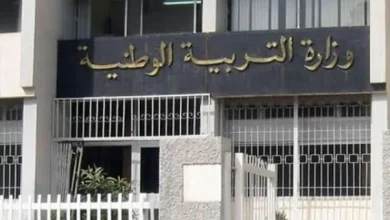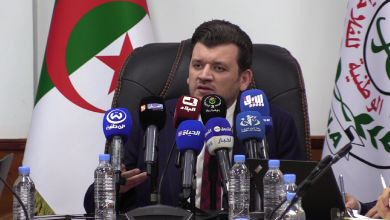The case of Mohammad Hassan, a young Syrian man sentenced to death in Iraq, has ignited a firestorm of controversy across social media platforms, drawing attention from human rights organizations and prompting official responses from both Syrian and Iraqi governments. The initial reports, fueled by a social media post from a Syrian criminal lawyer, sparked urgent calls for intervention and raised serious questions about due process and human rights violations. However, conflicting narratives and official denials have muddied the waters, leaving Hassan’s fate uncertain and highlighting the complexities of cross-border legal battles and the potent influence of online information.
The controversy began when lawyer Al-Mutasim Al-Kilani posted on Facebook that he had submitted a legal petition to the Office of the High Commissioner for Human Rights in Iraq regarding Hassan’s case. Al-Kilani claimed that the 22-year-old Syrian national was sentenced to death by the Najaf Criminal Court on October 27, 2025. According to Al-Kilani, Hassan’s arrest stemmed from a video he posted on his Facebook page earlier this year. The video allegedly depicted fighters from the Free Syrian Army (FSA) capturing a member of the Iraqi al-Nujaba Movement, a Shia paramilitary group.
Adding fuel to the fire, reports citing family members, disseminated through the “Syria Now” platform, claimed that the death sentence was directly linked to the discovery of a picture of Syrian President Bashar al-Assad on Hassan’s phone. They further alleged that authorities found a video on his phone showing the capture of an al-Nujaba fighter by the FSA. This claim, if true, raised concerns that Hassan was being punished for his political affiliations and activities within Syria, rather than for any direct actions committed on Iraqi soil.
These initial reports triggered a wave of online outrage, with social media users demanding immediate intervention from the Syrian government to save Hassan’s life. Many argued that death sentences in politically charged cases are inherently dangerous, often driven by bias and extracted through torture. The hashtag #SaveMohammadHassan quickly gained traction, amplifying the calls for justice and transparency.
However, a counter-narrative soon emerged. Some online commentators urged caution, emphasizing the need to verify the accuracy of the information and its sources. They pointed to the Syrian Ministry of Foreign Affairs as the official channel for information and warned against blindly accepting unverified claims circulating on social media. These voices expressed concern that fabricated stories could incite tensions between Iraq and Syria and called for patience and reasoned judgment.
Amidst the escalating online debate, the Syrian Ministry of Foreign Affairs issued a statement acknowledging the situation. Spokesperson Mohammad Al-Ahmad stated that, under the direction of the Minister of Foreign Affairs, the Ministry was actively monitoring the case with the Iraqi government through official channels, seeking to verify the authenticity of the published documents and pursue the matter according to established protocols. This official response provided a degree of reassurance, signaling that the Syrian government was taking the matter seriously, but it offered little clarity regarding the veracity of the initial claims.
For more information about News, check our dedicated section.
Adding another layer of complexity, the Iraqi Supreme Judicial Council issued a statement through its media center directly contradicting the reports circulating on social media. The Council stated that the information claiming Hassan was sentenced to death for posting a video praising President Assad or possessing materials related to the Free Syrian Army was false. Instead, the Council asserted that Hassan’s death sentence was related to the crime of praising Abu Bakr al-Baghdadi, the deceased leader of ISIS. This starkly different account of the charges against Hassan cast serious doubt on the initial reports and raised questions about the motivations behind the conflicting narratives.
Despite the Iraqi Supreme Judicial Council’s denial, protests erupted in Hassan’s hometown of Hasyaa, near Homs, Syria. According to the Syrian Arab News Agency (SANA), residents gathered in al-Saa’a Square, demanding that the Syrian government and the Ministry of Foreign Affairs intervene to save Hassan’s life and halt the execution. The protests underscore the deep concern and skepticism surrounding the case, even in the face of official denials from the Iraqi side.
The case of Mohammad Hassan highlights the challenges of navigating international legal systems, particularly in the context of ongoing regional conflicts and complex political relationships. The reliance on social media as a primary source of information, while enabling rapid dissemination, also carries the risk of spreading misinformation and exacerbating tensions. The conflicting narratives surrounding Hassan’s case underscore the importance of critical thinking, careful verification, and reliance on official sources.
Furthermore, the case raises critical questions about due process and human rights. The initial claims of torture and coerced confessions, if true, would represent a grave violation of international law. Even the Iraqi Supreme Judicial Council’s account, alleging that Hassan praised Abu Bakr al-Baghdadi, raises concerns about the fairness of the trial and the potential for political bias.
As of now, Mohammad Hassan’s fate remains uncertain. The Syrian government has pledged to continue monitoring the situation, but the ultimate outcome will depend on the Iraqi legal system and the willingness of both governments to ensure a fair and transparent process. The case serves as a stark reminder of the human cost of regional conflicts and the importance of upholding human rights, even in the most challenging circumstances. DZWatch will continue to follow this developing story and provide updates as they become available, prioritizing accuracy and impartiality in our reporting.



